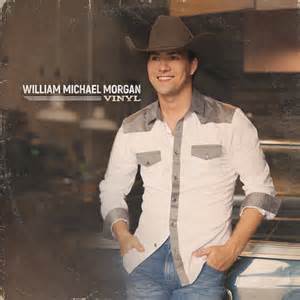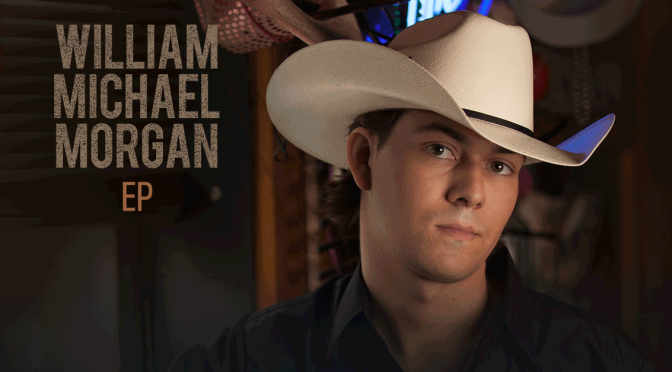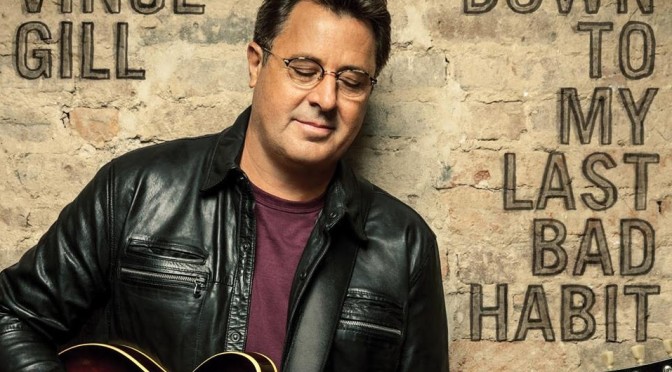Rating: 8/10
William Michael Morgan gained the attention of traditionalists about a year ago, when he released “I Met a Girl,” the decidedly country, if lyrically underwhelming, arrangement of a song written by none other than country music antichrist Sam Hunt. To some, this was a mark against him immediately; to others, myself included, this proved that Morgan cared about the traditional sound of his music. In March, his EP arrived, bringing nothing ground-breaking yet filled with promise and potential.
Review: William Michael Morgan EP
We finally got a full album from Morgan Friday, and although it’s not perfect, it’s an unapologetically country record coming out of mainstream Nashville which is a victory in itself in 2016. It’s not Haggard and Jones country, but it is Strait and Jackson and Keith Whitley country, and that’s exactly what we need right now–a mainstream artist bringing a true country sound to the masses. The Jason Isbells and Turnpike Troubadours of the world won’t get airplay; William Michael Morgan’s “I Met a Girl” will hit #1 this week. Because of this, we need to root for William Michael Morgan as much as Isbell and the Troubadours. With all that in mind, I’ll get to my thoughts on Vinyl
The album opens with “People Like Me,” a decidedly country song that could have been a hit on 90;s radio. If you read this at all, you know the importance I place on openers, and this one signifies William Michael Morgan’s country approach without apology. Many artists who are releasing pretty good albums with a few terrible singles choose the said terrible singles as openers, thereby hurting the album as a whole–Zac Brown Band’s “Beautiful drug,” anyone? The premise of “People Like Me” is an ode to the working class people who didn’t go to college and live paycheck to paycheck. “Vinyl,” the title track, follows; I have mixed opinions about this one. I quite liked it on the EP; it’s a song about an old-fashioned love that is classic like vinyl. It’s not a hookup song or disrespectful by any means, but I do find the repeated use of ‘girl” to be annoying; it’s the same thing we criticize Florida Georgia line for, so I can’t let Morgan get by with lazy lyricism even if it has country instrumentation. It’s hard to form an opinion here, and I can see how people could enjoy it or hate it.
“Missing” is one of the highlights of the album; here, Morgan escapes the world for awhile to go “on a mission to be missing.” He ignores his messages and leaves the world behind, something we all should do a little more often. The instrumentation and production combine to make this a really fun and enjoyable listen. Next is the single, “I Met a Girl,”–this has grown on me considerably since its release. It’s a very basic song about, well, meeting a girl, but although the lyrics aren’t earth-shattering, there’s a sincerity about it that really stands out. “Spend it All on You” is a nice, lighthearted track about getting away with a girl to enjoy time together. This one is one of the more modern-leaning songs on the album, but modern-leaning is the key here; it is still traditional. IN fact, the whole album stays with a definite traditional sound. “Beer Drinker” came from the EP; there is not much to say about this song. Its lyrics could be considered shallow by some, as it attributes everything that gets done to the work of beer drinkers. However, as I stated in the EP review, we all love George Strait’s “Stop and Drink,” and that doesn’t come off pandering at all. It is just a fun song that doesn’t take itself too seriously, and I think “Beer Drinker” is intended to be much the same.
“I Know Who he Is” is another highlight; I wish the production were a little less modern-leaning here, but the lyrics are great. The narrator is talking to the doctor about his dad, who is suffering from Alzheimer’s disease;
I don’t wanna hear he’s going downhill, what about thank God he’s around still? Looking right through me’s not at all the way I see him. I don’t mind at all remembering for him, he doesn’t have to get why I adore him. He doesn’t have to know me, I know who he is.
“Cheap Cologne” carries a throwback, Keith Whitley style sound that really suits Morgan. This was one of the highlights of the EP and is about a man who lies at home in bed with his bourbon while his woman is out, probably cheating–She don’t smoke cigarettes, and I don’t wear cheap cologne.” “Something to drink About” is similar to “Beer Drinker” in that it walks a fine line between safe and shallow. It just lists all the possible reasons for drinking, which again is quite like strait’s “Stop and Drink.” This could have been left off and it would have made no difference, but it doesn’t really hurt the album either. “Lonesomeville,” co-written by William Michael Morgan, is the best of the album–it’s a classic country heartbreak song that has been told thousands of times, and that’s really all I can say about it. It speaks for itself with a listen. The album closes with “Backseat driver,” which has emerged over several listens as a dark horse for my personal favorite. It’s a song about a young man leaving home while his dad gives him advice about the road ahead and tells him, “I can’t be your backseat driver anymore.” This one isn’t as traditional as some of the others, but this one is more believable from the 22-year-old Morgan, and this authenticity makes it stand out.
Overall, this is a really solid album, especially for a debut. William Michael Morgan is perfectly clear and uncompromising in his desire to make country music with a traditional sound. The lyrics are weak in places, and there are definitely some safe songs. This album has its flaws, but it also has several standouts. Most importantly, it is filled with promise for William Michael Morgan and for mainstream country in general.



